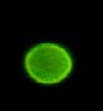Cryptosporidium
Overview
Cryptosporidium is a protozoan parasite that can infect humans. Infection can result in a diarrhoeal disease called Cryptosporidiosis. Most people will recover within 4-6 weeks, however individuals with a compromised immune system may be more seriously affected.
Transmission is generally by the faecal oral route, either directly or indirectly. Direct transmission can occur through person-person or animal-person contact. Indirect transmission occurs through contact with contaminated surfaces or the ingestion of contaminated food, drinking and swimming pool water. There have been a number of well-documented outbreaks of Cryptosporidiosis. The UKHSA have produced a Guidance note on Cryptosporidium which provides information on sources and routes of transmission, symptoms and general hygiene advice to minimise the spread.
Cryptosporidium poses a challenge to water treatment, because of its small size and resistance to chlorine. However, most investigations of outbreaks have shown that they happen only when some aspect of water treatment is inadequate, or on rare occasions where contamination enters the distribution network. There is good evidence that careful risk assessment, design and operation of water treatment, affords a very high level of protection against exposure to the parasite.
Water companies must assess the risk of Cryptosporidium in its water sources, and design and continuously operate a water treatment process to remove the parasite or render it inactive. This is a regulatory requirement, and failure to comply is an offence.


 Cryptosporidium under the microscope
Cryptosporidium under the microscope
